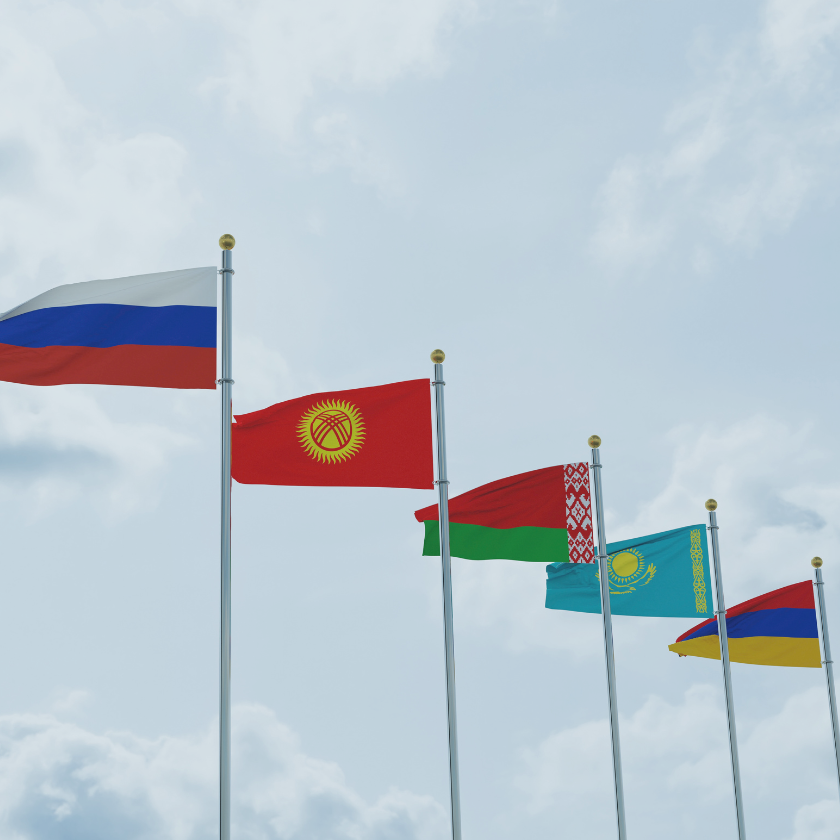Russia-Eurasia
Eurasia is undergoing profound changes. While the Soviet past has left a lasting imprint, Russia and the countries of Eastern Europe, Central Asia and the South Caucasus have their own trajectory.
Related Subjects




Russia, International and Internal Stakes - Special Issue of Politique étrangère

Russia and the Deadlock over Kosovo
Russia and the West disagree over the future of Kosovo. While the European Union (EU) and United States (US) are keen to grant Kosovo de jure sovereignty under the Ahtisaari plan, Russia insists that no decision can be taken without Serbia's consent. Moreover, Russia insists that the Kosovo issue will set a precedent with long-term consequences for Eurasia and the world. These differences have exposed old divisions between Russia and the West, particularly acute during NATO's bombing of Yugoslavia in 1999. However, today it is more difficult for the West to reach a compromise with an increasingly assertive and self-confident Russia which does not hesitate to oppose Western policies. This article looks at historic legacies, myths, concerns about precedents and other interests which guide Russia's policy over Kosovo's status.
The Shanghai Cooperation Organization as "Geopolitical Bluff?" A View from Astana
Since the mid-1990s, the Shanghai Cooperation Organization (SCO) has been an important factor in, and exerts significant influence on both Kazakhstan's international situation and geopolitical processes in Central Asia. Various aspects of Kazakhstan's interests are included in the SCO, among them geopolitics, security, the economy and regional politics. The topics addressed by the SCO can be divided into wide-ranging and often unconnected problems, which are more often than not solved outside the framework of the SCO. In the end, the SCO is only a great 'geopolitical bluff.' And while the USA seems to be almost an 'unofficial partner' because it so influences Central Asia as a whole, the European Union has almost entirely withdrawn from that geopolitical scene. As yet, the SCO poses more challenges and risks for Kazakhstan than it offers advantages.
Abkhazia and South Ossetia: Collision of Georgian and Russian Interests
This article focuses on the deterioration of relations between Georgia and Russia over the secessionist regions of Abkhazia and South Ossetia. Georgia's separatist conflicts are far more than domestic territorial disputes: they have both regional and international implications, and represent one of the principal obstacles to the development of Georgian-Russian relations. As military skirmishes have threatened to escalate, jeopardizing stability in the volatile Caucasus region, President Mikheil Saakashvili's desire to resolve these protracted conflicts has become symbolic of his vigorous approach to tackling Georgia's more intractable problems.
Dr. Tracey German is a Lecturer in Defense Studies at the Joint Services Command and Staff Colege, King's College, London. Her research focuses on security in the Caucasus region, particulary the Chechen conflict and Georgian-Russian relations, as well as energy issues in former Soviet states.
Russie.Nei.Visions is an electronic collection of policy papers published in French, English and Russian by the Russia/NIS Center, Ifri.
The EU and Russia: the Needed Balance Between Geopolitics and Regionalism
While the EU conceives its neighborhood via regional policies, Russia sees it in terms of geopolitics. A large part of the misunderstanding which prevails on both sides concerning the 'Common Space for External Security' stems from the clash between these different mental maps. By examining the respective and reciprocal implications of these approaches, this paper underlines the need for both parties to become conscious of the conceptual gap between their viewpoints, and to try ultimately reducing it.
Representing Private Interests to Increase Trust in Russia-EU Relations
Increasing the number of actors participating in the daily dialogue between Russia and the EU can not only contribute to solving important issues surrounding these bilateral relations but also, more broadly speaking, to those surrounding the integration process within Europe itself. The inclusion of business representatives and non-profit organizations in this process would make it easier to gage the different social, economic, and political behaviors within 'Old Europe' and overcome the 'democratic deficit' resulting from the absence of citizen participation in the management of Russia-EU relations, and its monopolization by state bureaucracies.

Support independent French research
Ifri, a foundation recognized as being of public utility, relies largely on private donors – companies and individuals – to guarantee its sustainability and intellectual independence. Through their funding, donors help maintain the Institute's position among the world's leading think tanks. By benefiting from an internationally recognized network and expertise, donors refine their understanding of geopolitical risk and its consequences on global politics and the economy. In 2025, Ifri supports more than 80 French and foreign companies and organizations.








